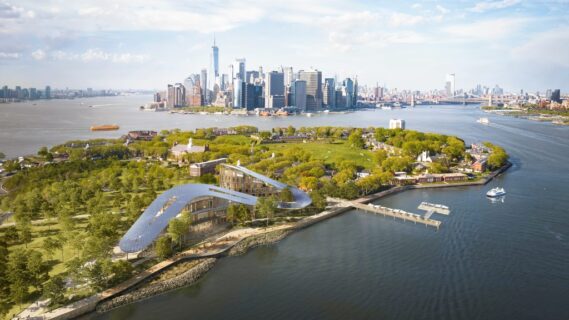On September 9, 2025, Colby College announced a record $150 million gift to advance a major expansion in science and technology—its largest donation ever and one of the biggest gifts to a liberal arts institution. The milestone reflects a growing trend of transformative philanthropy reshaping university campuses nationwide.
The donation is the lead commitment to a planned $500 million investment, with a focus on building a $300 million science complex that will transform the school’s science curriculum and research programs. The building opens in 2030 and will be a new hub for research, teaching, and collaboration.
Spanning roughly 200,000 square feet, the complex will house modern teaching and research laboratories, faculty offices, classrooms, fabrication labs, and advanced computing resources. Colby officials said the design will encourage collaboration by bringing together researchers across scientific disciplines and equipping shared spaces with specialized technology.
The project will also allow Colby to add applied sciences and engineering for the first time. New majors are anticipated in biomedical engineering, environmental engineering, materials engineering, and public health, alongside new additions in data science, computational biology, and marine science. Combining liberal arts traditions with cutting-edge scientific training, the college is aiming to equip graduates to lead changing fields.
These investments will allow us to move that work to another level, so that science education and the application of scientific knowledge are serving Maine’s needs, ” said Colby President David A. Greene. “It is significant, too, as it allows Colby to be on the leading edge of preparing future generations of science and technology leaders.”.
Designed by Skidmore, Owings & Merrill
Last December, Colby College also confirmed that the internationally renowned architectural firm Skidmore, Owings & Merrill (SOM) will design its new science complex, a 200,000-square-foot facility scheduled to open in 2030. The building will bring a wide range of scientific disciplines together under one roof, including teaching and research laboratories, classrooms, fabrication labs, specialized equipment, and collaborative spaces. The project is part of Colby’s $500 million investment in science and technology.
SOM has designed the complex to be energy-efficient and integrated with the campus landscape, creating both an academic and social hub. Flexible, adaptable spaces and sustainable features are intended to support evolving scientific research and teaching, strengthening Colby’s role in Maine’s growing science ecosystem.
Across the country, universities and colleges are expanding their science departments to address real-world challenges and develop practical solutions. Additionally, Universities and colleges across the U.S. are investing in new or modernized science facilities to support interdisciplinary research, advanced teaching, and hands-on learning. By integrating laboratories, classrooms, and collaborative spaces in a single location, these projects aim to break down silos between scientific disciplines, foster innovation, and better prepare students for careers in rapidly evolving fields such as biotechnology, environmental science, and data-driven research. The University of Tampa’s Science Center is a notable example, combining teaching and research spaces along the Hillsborough River to enhance collaboration across its science programs. Construction is scheduled to begin in Spring 2026, with the facility expected to open in 2030.
Culture of philanthropy
Across the United States, a long-standing culture of philanthropy has played a defining role in shaping the growth and innovation of educational institutions. Universities, colleges, and schools routinely rely on major gifts and endowments to fund new facilities, expand academic programs, and enhance the overall student experience. These donations often come from alumni and benefactors who view their contributions as investments in future generations — helping institutions stay competitive in research, athletics, and technology. From cutting-edge science complexes to modern performance centers and sustainability-focused campuses, such philanthropic support has become a cornerstone of higher education development, driving progress that public funding alone often cannot sustain.
The latest to benefit from this culture of educational philanthropy is DePauw University, which recently announced an $80 million commitment from an anonymous alumnus to build a new Blackstock Stadium and Performance Center. One of the largest pledges in the university’s nearly 200-year history, the gift will support the creation of a state-of-the-art athletic facility designed to enhance student-athlete wellness, community engagement, and campus life.
The latest to benefit from this culture of educational philanthropy is Vanderbilt University where they have begun construction on a 50,000-sq.-ft. expansion of Hawkins Field with up to $10 million in gifts from former players, while DePauw University recently announced an $80 million commitment from an anonymous alumnus to build a new Blackstock Stadium and Performance Center. One of the largest pledges in the university’s nearly 200-year history, the gift will fund a state-of-the-art athletic facility designed to enhance student-athlete wellness, community engagement, and campus life. Alongside Colby College’s recent $150 million donation for a new science and technology complex, DePauw joins a growing list of institutions nationwide using major gifts to drive campus expansion and modernization.

Colby College New Science Complex: Project Factsheet
Project Overview
Total Investment: $500 million
Lead Gift: $150 million (record-setting donation, largest in college history)
Expected Opening: 2030
Facility Specifications
Total Area: 200,000 square feet
Construction Cost: $300 million
Facility Type: Multi-disciplinary science complex
Key Features
Modern teaching and research laboratories
Faculty offices and classrooms
Fabrication laboratories
Advanced computing resources
Collaborative shared spaces with specialized technology
Cross-disciplinary research environments
Academic Programs
New Programs (First-time offerings)
Biomedical Engineering
Environmental Engineering
Materials Engineering
Public Health

Leave a Reply